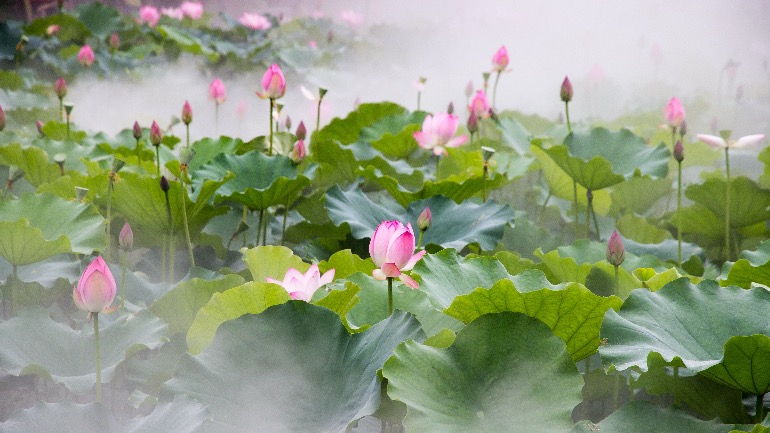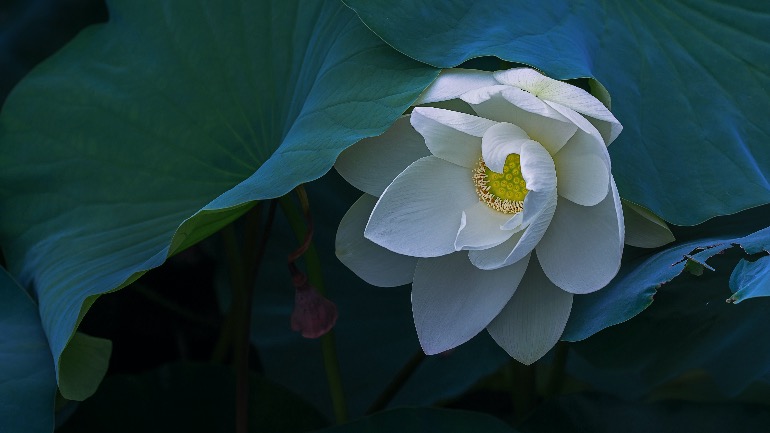In addition, all practitioners need to do a self-check on goal setting. An incorrect goal would be tantamount to one’s biggest inadequacy. If that happens to be the case, then one may not even be a qualified beginner of Buddhist studies at this point. If unwilling to work hard, one will forever remain a non-Buddhist. Actually, everyone has the capacity to arouse uncontrived bodhicitta if real effort can be put into the practice. Bodhicitta, as taught by Shakyamuni Buddha, is a practice exactly meant for people, perhaps like us, who are not yet beginners and have no bodhicitta.
KHENPO'S BLOG
Naturally, before cultivating great compassion, one should generate renunciation first. One cannot have great compassion for sentient beings if one is unaware of the suffering of samsara, because compassion comes from the suffering of sentient beings. No compassion, no bodhicitta either. The other condition for developing renunciation is the desire for liberation. When seeing the suffering of sentient beings, one aspires to save them from the clutches of samsara forever. But on second thought, how can one help others if one cannot attain liberation for oneself in the first place? With this in mind, the two requisites for generating renunciation— aversion to samsara and desire for liberation—are complete.
- Quote from The Right View, "Buddhism—the Definition"
Likewise, without examination, all physical and mental phenomena appear to be very solid and orderly; however, they all disintegrate into empty space when subject to investigation. The phenomena perceived by our eye, ear, nose, and tongue are all illusions; they are neither real nor reliable.
- Quote from The Four Seals of Dhama, "The Practice of Realizing Emptiness"
With bodhicitta, many problems related to practice could be easily solved since bodhicitta has within itself the incredible capacity for accumulating merit, forgiving and purifying evil karma and so forth. Thus, bodhicitta is regarded as the indispensable universal key for the entrance of Mahayana Buddhism.
The only way to completely and permanently release sentient beings from all suffering is to teach them the facts of samsara and guide them to practice the Dharma so as to bring them onto the path of liberation. Ultimately, this is the real benefit to sentient beings, indeed the true meaning of salvation.
- Quote from The Right View, "Buddhism—the Definition"
If we lack for food, we can borrow money or even beg to get something to eat; whatever the situation, there is always a way. However, on a major issue such as birth, aging, illness, and death, we cannot borrow money or beg for help; without prior practice, there is nothing that can be done. Thus, even the poor have to practice.
- Quote from The Four Seals of Dhama, "The Importance of Practice"
So keep in mind of the preciousness of this human birth. Don’t waste this life in neglect and ignorance, and miss the one chance for seeking freedom from samsara. In order to succeed, we must first begin by cultivating renunciation. Failing that, neither meditation nor mantra chanting can ever be deemed supramundane practice through which ultimate liberation can be attained. This is extremely important!
Renunciation is the prerequisite to bodhicitta. Without complete renunciation, genuine bodhicitta can never be aroused.
- Quote from The Right View, "The Three Differences"
Although we are under a great deal of pressure, we are blessed with precious human birth endowed with leisure and freedom to practice. If we do not practice, no one can say for sure what will happen in the future. Even if everyone says “tomorrow will be better,” who can give us that guarantee? Natural disasters, famine, war, and violence can descend on us at any time. Let us seize this opportunity now!!
- Quote from Are You Ready For Happiness? Don't Let the Paper Tiger Scare You Off, "Taming the Mind as in Taming the Elephant"
Similarly, although our feeling is very strong at the start of the practice, the feeling diminishes in time and eventually gives way to all kinds of thoughts. Thus, when the thoughts arise, we must stay vigilant and immediately return to our investigation.
The most important thing in the practice is to first abide in this state of mind, then watch our mind from the side.
- Quote from The Four Seals of Dhama, "The Practice of Realizing Emptiness"











